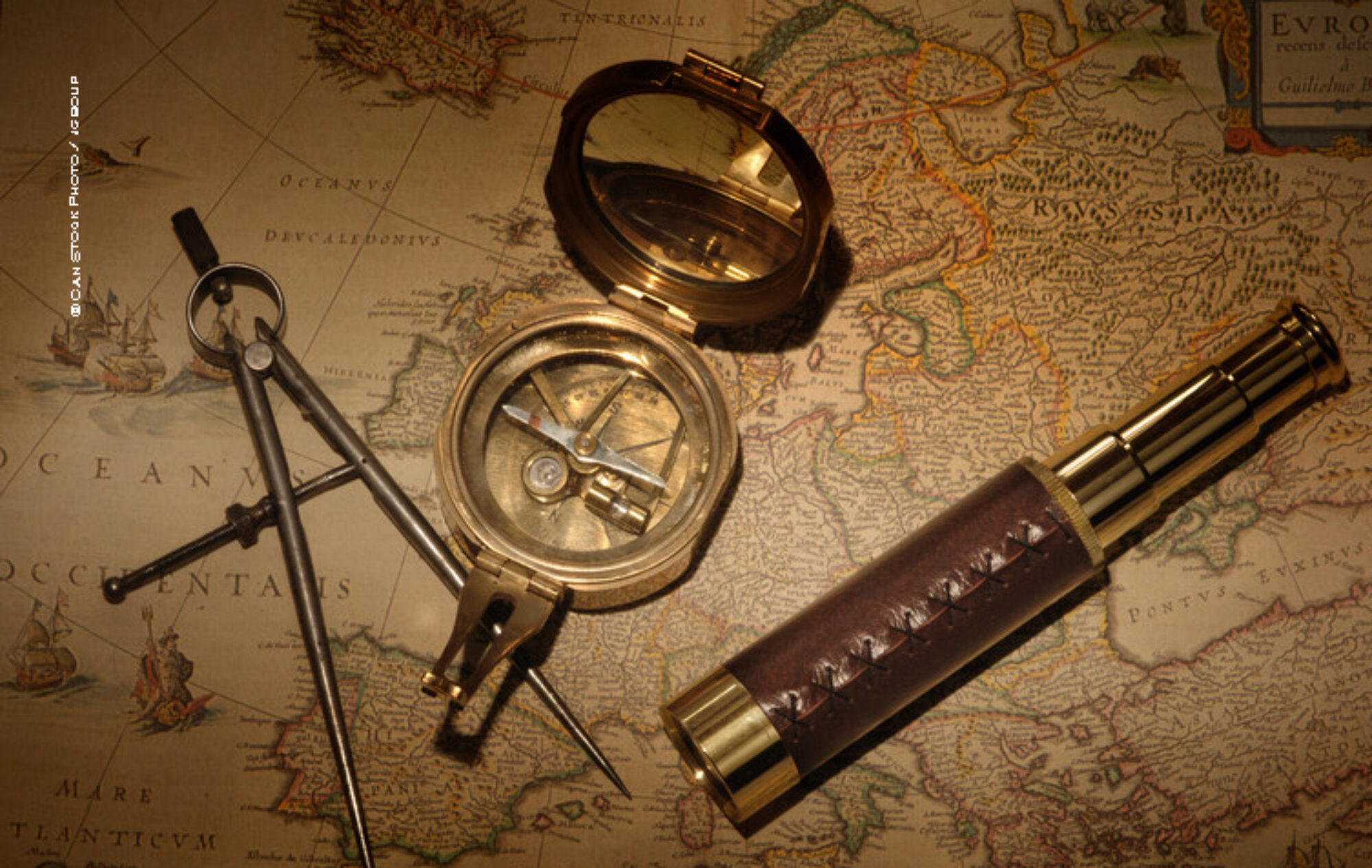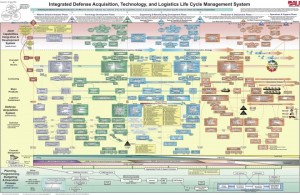
Lou recently wrote an OpEd piece on a new engine being considered by the Air Force for the Joint Strike Fighter. Here is the link to the piece.


Crenshaw Consulting Associates
Business Advice with Integrity

Lou recently wrote an OpEd piece on a new engine being considered by the Air Force for the Joint Strike Fighter. Here is the link to the piece.
I recently had a piece on the Navy’s Electromagnetic Aircraft Launch System (EMALS) installed on the USS GERALD R. FORD (CVN-78) published on the Defense News website. The system uses electromotive force instead of steam to launch carrier-based aircraft. I recommend you give it a read, rather than repeating everything here. But the bottom line is if we expect aircraft carriers to be relevant in 2050 and beyond ( CVN-78 will still be in service in 2070) then the Navy must invest in this type of technology. Steam got us through the 19th and 20th Century, but it’s not going to get us to the 22nd Century.
Here’s the link to Defense News.
This was the title of a 16mm movie that was popular in the mid-50’s, which was a humorous look at flight operations onboard a US Navy aircraft carrier. There’s probably not one grey-haired (or bald), retired Naval Aviator who hasn’t seen it. It comes from an era in which all professional and social life at sea revolved around the squadron Ready Room. It was your office, flight briefing and debriefing center, lounge and movie theater.

The movie was required event for any officer not on watch or SIQ (Sick in Quarters). As Squadron Duty Officer, you had several “duties”…keeping the flight status board updated, making sure the briefs were on time, doing the Skipper’s bidding, and picking the movie. In those days, movies were doled out by the Ship’s Movie Booth, based on squadron priority. The priority rotated among the Ready Rooms so that each Duty Officer had a chance to pick a decent flick and salvage the day.
Of course there were rules:
With respect to the movies, the Duty Officer also had custody of the “Skinny Scope” (CinemaScope) lens, so that you were not forced to watch the move with all the characters looking like coneheads. The Duty Officer was also charged with the solemn duty of maintaining the movie log, a compendium of reviews and record of recent movies watched. One always carried the movie log with them to the movie booth to assist in picking the next feature film. I can remember in VA-65 we had an elaborate point system for grading movies…1 point for each death, 1 point for a train, 5 points for nudity, 1 point for a cowboy, and some which are probably not wise to mention.
I’m not sure what happens now when the air wing is at sea. Movies are on the ship’s TV system. I doubt if there’s a 16mm projector anywhere onboard. I’m pretty sure the Movie Booth is history. And thankfully, Squadron Duty Officers can focus on more important duties than picking the movie.
P.S. Don’t ask me why, but I still have a copy in 16mm format. Any Ready Room out there that wants to borrow it, is welcome to it…..just make sure you rewind it before returning!
And now for your viewing pleasure:

I just published an OpEd piece in American Military News after looking at the FY 2019 DoD Budget again. I can’t believe we aren’t asking for more Tomahawk Land Attack Missiles. The Reason? We are going to build a new Land Attack Missile by 2028…..that’s around 10 years folks! Any bets on a 2028 delivery? Anyone? Bueller? Anyone? Anyway, I think the piece says it all, so I invite you to read it. Here’s the link to the article…..Closing the Tomahawk Line is Risky Business.
Today’s missive is about the failure of success. This phrase is a take on the one coined in a paper I often reference by Dean Ludwig and Clinton Longenecker entitled The Bathsheba Syndrome: The Ethical Failure of Successful Leaders. This came to mind once again as I was reading the morning paper and discovered an article on yet another Naval Officer pleading guilty to bribery and conspiracy charges in conjunction with the Fat Leonard debacle. Here’s another sad failure of a successful individual. Perhaps this commander was an otherwise decent guy. But how does a decent guy, a successful Naval officer, wind up in the throes of bribery and prostitution? Before I sound too self-righteous, I should point out that there is a dark side to each of us. I just finished reading a great book by Christian Miller entitled The Character Gap: How Good Are We? The theme of this book was that we all are some mixture of good and bad. Most people wind up between the extremes. Surprisingly, we tend to think we are not a bad as we might actually be, and we almost always overlook our flaws. This problem of human nature gets magnified when we become successful, making it all the more important to constantly evaluate our behavior. The book ends with some strategies to keep one on a virtuous path. There is one interesting strategy worth mentioning here, “nudging toward virtue.” The basic premise is that there are little “nudges” you can make which tend to move one towards a more virtuous life. The analogy used is called “Fly in the Urinal”. There’s an airport in Europe that was having real trouble with maintaining cleanliness in the men’s room. Signs urging guys to pay more attention to doing their business apparently didn’t have much effect. By engraving the image of a house fly in the bottom of the urinals, spillage decreased 80%. The signs were a hammer, the fly was a nudge, but many times more effective than the hammer. (I’m reminded of the sign in the men’s room at Penn Station in New York: ONLY ONE PERSON PER URINAL) Nudges can be little things, giving blood, giving a homeless person a buck at a stoplight, a quick thank you to the janitor, etc. While nudges won’t necessarily turn things around, they are a reminder that each one of us could do better.
By engraving the image of a house fly in the bottom of the urinals, spillage decreased 80%. The signs were a hammer, the fly was a nudge, but many times more effective than the hammer. (I’m reminded of the sign in the men’s room at Penn Station in New York: ONLY ONE PERSON PER URINAL) Nudges can be little things, giving blood, giving a homeless person a buck at a stoplight, a quick thank you to the janitor, etc. While nudges won’t necessarily turn things around, they are a reminder that each one of us could do better.
Back to failures of success. Examples are everywhere. I always introduce myself as a ‘twice-failed” retiree.” I just can’t seem to get this retirement thing right. Many small businesses fail because they are wildly successful as an 8(a), but fail to make the transition to big business. Football teams can be highly successful for 58 minutes of a game, only to revert to a “prevent defense” for the last two minutes. They stop doing the things that made them successful for most of the game and the opposing team takes advantage of this lapse. Senior leaders destroy brilliant careers by outrageous behavior. They, too, abandon what made them successful all their career.

It seems to me that the worlds of success and failure are very much alike:
So how does a successful person avoid the “failure of success”, succumbing to the Bathsheba Effect? How does one stay on the success side of the fine line?(This is a good place to point out that I firmly believe that the more successful you are, the more susceptible you become to the failure of success.) Besides the aforementioned Nudge to Virtue, Here are a few of tips I found useful:

I’ve been meaning to put together one of those “What’s Out, What’s In” lists. Recently I was speaking at an event and I came up with an abbreviated list of outs and ins that I thought I would share. You know the list I’m talking about? The Washington Post usually puts one in the Style section in the week between Christmas and New Years…probably because all the highly-paid writers are off on holiday, so the hoi polloi stuck in the office get the task of putting one together. Lately the list has served as notice to me that I seem to have lost track of what’s hot and what’s not in the world these days. Here’s a link to this year’s list. I got about 10% of the items. Swedish Death Cleaning? What’s that? I did think the “Plastic Bags Stuck in Trees ⇒ Cardboard Stuck in the Gutters” was pretty funny, given the huge number of Amazon boxes in circulation. You could spend all day clicking on the links to try and understand the humor, but why bother when I’m about to give you a much easier to understand list? Feel free to send me some more and I’ll put them in. Here goes:
LPTA
R&D
Big IT Buys
Servers
Desktop
Single Awards
Last of the Boomers
Office
Multiple Services
Service Medical
Audit Prep
Pokémon
Continuing Resolutions
Fires/Floods/Hurricanes
2016 Presidential Election
Service Dogs
National Security Strategy
Performance Based
Innovation
Agile
Cloud
Mobile
Multiple Awards
Millennials/Xers/iGen
Flex
Shared Services
DHA
Audit
Poke
More Continuing Resolutions
Meteors/Earthquakes/Zombie Apocalypse
2020 Presidential Election (Already?)
National Military Strategy
OK. That’s all I could come up with on short notice, but it’s a fun exercise to think about what seemed to be so critical 365 days ago is all but forgotten now. Every time I do this exercise, I am reminded about the progression on leadership themes I have seen in the Navy since I was a midshipman. Let’s see if anyone remembers: Day-long Sensitivity Training, Management by Objective (MBO), Total Quality Management (TQM), Lean, Six Sigma, Navy Enterprise Model, Accelerated Learning, Business Process Reengineering. I can still see the TQM workshops with the red and white balls in my mind as well as watching videos of Demming droning on. I remember when it was declared that all SES and Flags should be at least a Brown Belt. I’m not quite sure what management fad we are in now, but if you have some ideas, please comment. By the way, I hope this page looks decent. It taxed my knowledge of HTML to get columns into the article…And harder still to get them to stop. By the way, for all you retired Flags and SESers, I will be happy to collect your brown belts and sell them on consignment.
 This is the second part of an article on trust. In Part One, most of the discussion was on whom I did not trust and why. Of course, everyone wants to be on the other list, the “I Trust” list. In the last article, I asked that you take some time to make your own list of those you trust and don’t’ trust and to think about why they fall on a particular list. The ultimate aim for you to strive to be on everyone else’s “I Trust” list. It’s a great list to be on.
This is the second part of an article on trust. In Part One, most of the discussion was on whom I did not trust and why. Of course, everyone wants to be on the other list, the “I Trust” list. In the last article, I asked that you take some time to make your own list of those you trust and don’t’ trust and to think about why they fall on a particular list. The ultimate aim for you to strive to be on everyone else’s “I Trust” list. It’s a great list to be on.
I had a tougher time coming up with a list of those I trust because I found that unless someone had done something to violate my trust, most people were on my “I Trust Them” list. There are some obvious ones that I won’t dwell on: parents, brother, wife, children and their families, close friends, etc. There are some outside of my immediate circle of family and friends that I do think are worth mentioning:
My pilot. Many years ago as a Bombardier/Navigator flying A-6 Intruders I found myself completely dependent on the aviation skills of the person sitting directly to my left, my pilot. Over the years I may have trusted some more than others, but I never jumped in a jet without complete confidence that we were going to get home safely. There were no flight controls over on my side, so I guess I didn’t have much of a choice.
The flight deck crew. More than 1000 times I placed my life in the hands of the young Sailors who were responsible for maintaining my  airplane,hooking it to the catapult, ensuring the correct amount of steam was dialed in, directing my Intruder back to the carrier via radar control, setting the arresting gear to the correct weight and taxing the jet to a safe parking spot. Over the course of a deployment, I came to know many of them personally….but not all. And still I trusted them completely.
airplane,hooking it to the catapult, ensuring the correct amount of steam was dialed in, directing my Intruder back to the carrier via radar control, setting the arresting gear to the correct weight and taxing the jet to a safe parking spot. Over the course of a deployment, I came to know many of them personally….but not all. And still I trusted them completely.
The Post Office. Oddly enough, I trust the Post Office to deliver important mail, almost without question…I send my tax payments, pay bills, and Christmas cards and expect them to get there, on time and intact. If I didn’t trust them, I suppose I could use FEDEX, UPS or some other private courier, but they are expensive. Because I trust the Post Office to deliver, it’s not worth the cost and, in truth, FEDEX has lost a very valuable shipment (my golf clubs). I’m reminded of the scene in Miracle on 34th Street when Fred Gailey does such a masterful job of describing the Post Office. Unfortunately, his main point is the US Postal Service is an arm of the US Government, and that alone should prove that it’s efficient, effective and reliable- not necessarily these days. A recent Gallup Poll revealed 47% of Americans have little or no confidence in their government. (ED Note: The Lovely Mrs. Crenshaw disagrees with me on this one….yet she still sends lots of payments through the US Mail..I’m just sayin’)
Amazon Prime. You can count of one hand the number of times that Amazon has missed a promised delivery date. When they do miss, I get a message letting me know that something’s going to be late. So I trust Amazon not only because they have a track record of delivering on their promises, but also because they let me know when they are going to fall short of my expectations. This is an important concept for leaders to ponder. Those who work for you will not always be right, or deliver on your expectations. But if you let them know that you trust them, more often than not they will deliver and your trust level with them will increase. I always expected that everyone who worked for me was doing their jobs and didn’t spend a lot of time checking up on them. If something went amiss and they had told me about it, then I may not have been happy, but I did not lose trust in them. On the other hand, if something went wrong and I didn’t know about it, not only was I unhappy, but I also lost trust in that person. As a result, I had to check on everything they were doing and eventually I just didn’t give them anything to do.
Banks. Call me naïve, but I just don’t worry about the safety and integrity of my deposits. I’ve had a hiccup or two throughout the years, but unlike my  parents, I keep the majority of my money deposited in bank accounts. I mention that because as my brother and I have been going through things in the old family home (My Dad passed away a couple of years ago and my Mom now lives in an assisted living facility) we found some cash just stuffed between the pages various books. My Dad kept a giant safe in the house with a substantial amount of cash in it. They never had credit cards, and on the rare occasion they travelled, they used cash. They were a product of the Great Depression and no doubt didn’t trust banks as a result. I know that there are constant cyber threats which seek to challenge the integrity of the banking system, but I trust my financial institutions to stay on top of things.
parents, I keep the majority of my money deposited in bank accounts. I mention that because as my brother and I have been going through things in the old family home (My Dad passed away a couple of years ago and my Mom now lives in an assisted living facility) we found some cash just stuffed between the pages various books. My Dad kept a giant safe in the house with a substantial amount of cash in it. They never had credit cards, and on the rare occasion they travelled, they used cash. They were a product of the Great Depression and no doubt didn’t trust banks as a result. I know that there are constant cyber threats which seek to challenge the integrity of the banking system, but I trust my financial institutions to stay on top of things.
The pilots in the cockpit of my next flight. Why not? If I didn’t trust them I guess I would drive. Of course, I have no idea who they will be or what their safety record is. I trust that the various players in that chain have followed all the rules and regulations and that the pilots themselves have enough integrity to know when it’s not safe for them to fly. I know there are occasional reports where a crewmember has been removed for being drunk but they are not frequent enough to affect my trust. In reality, it’s not the individuals I trust, but the institutions which govern the pilots’ behavior. I assume that such institutions are one of those that the 53% of Americans do trust . I just saw in the news that 2017 was an extremely safe year for American-based airlines, with zero casualties related to accidents. My trust seems well placed, for now.
So why do I trust those on my list? I won’t comment on my trust of family and friends, except to say that in almost seven decades they have never let me down. It’s why I’m generally a trusting person. I know that not all of you will trust every family member, spouse or certain friends, most likely because they violated your trust. That gets to a point I made in the previous article, lack of trust because that trust was violated. Here are some factors in fostering trust:
Reliability. Many people and organizations I trust deliver on their promises regularly and reliability. It’s important to note that those organizations don’t always deliver, but the ones I trust are really good about keeping me informed when they know my expectations may not be met. When they miss the mark, I have confidence that they are looking into the whys and wherefores and they will do better next time. If you want others to trust you, you have to deliver or “fess” up when you fall short.
Empathy. I trust those that I think are considering my concerns when they are making decisions on my behalf. Those decisions may not always be the ones I would make, but at least they considered my point of view. This is the principal reason many Americans lack trust in the Hill at present. A December 2017 Gallup Poll on approval rating of the US Congress found that 78% of Americans disapprove of the job Congress is doing. I submit that most of the problems on the Hill come from a lack of trust among them. Neither side of the aisle trusts the other, so nothing really gets done. People compromise when there is respect for and trust in the views of others. Violation of confidentiality, constant partisan bickering and “he said, she said” confrontations all erode trust. To be trusted in your dealing with others, they must feel that you care about their views, not necessarily agree with them.
Honesty. If I find out that someone was not honest with me, I will not trust them. Honesty is fundamental to any trusting relationship. There’s a presentation on Ethical Decisions in the Insights tab of the CCA Website, and it has a section on honesty, truth and truthfulness, so I won’t rehash that here. I do want to say a word about my previous comment about telling the truth and being truthful. I’ve seen this get people into trouble again and again and as a result, they lose credibility and sacrifice trust. You know what I’m talking about here. Remember the old gag in The Pink Panther? “Does your dog bite?”
Same thing here. Carefully crafting answers that are true, but not truthful is a quick ticket to the “Don’t Trust” list.
Track Record of Trust. If I tell you something in confidence, I expect my wishes to be honored. People who have proved themselves trustworthy by respecting my wishes in the past are likely to stay on my trust list until proven otherwise. In the electronic age this is hard to do. There are so many ways that you can inadvertently blab something said in confidence and the next thing you know, it shows up on Facebook. Being able to openly express opinions is part of a healthy debate, but be sure all know the ground rules before getting started. I go to a lot of events with Chatham House Rules. If you want a whole bunch of folks labeling you as untrustworthy, violate that rule. However, a word to the wise. Nothing in the world of public affairs is “off the record.” I am very choosy about whom I choose to speak to “in confidence” and you should be too!
Hope this wasn’t too long. I’m sure you have your own criteria for whom you trust. But spending some time thinking about how you earn and keep the trust of others is very important as a leader or executive. Whether on the battle field or in the boardroom, trust is a key aspect of your effectiveness as a leader. If people don’t trust you, it’s going to be awfully hard to get them on the bus. There used to be a paper floating about with excerpts from British Navy fitness reports. One of my favorites was “his men would follow him anywhere, but only out of sheer curiosity.” Make sure your followers are not just curious, but trusting as well.
PS. Please excuse my misuse of who and whom. I know I have violated the who or whom rules. But “Whom Do You Trust” sounds so pretentious. My old English teachers are all rolling in their graves and I apologize to them.

OK, I know it’s been a while since I sat down and put some thoughts on paper…One of my New Year’s resolutions it to do a better job. Frankly, for me, writing these articles is a way to organize my thoughts and to vent (but not too much). And it seems that of late one risks a great deal by exposing one’s thoughts to the universe of tweet-ers, facebook-ers, linked In-ers, and web lurkers, given the apparent lack of tolerance for anything but the most extreme views. There. I feel better.
On to “Who do you trust?” I think it’s a good time to consider this question, especially in light of the “fake” news craze, endless exposure to unverified “Breaking News”, and a Congress seemingly motived by party politics and reelection fever over trust. I admit that’s harsh, but I’m pretty sure when you make a list of who you trust, your representatives on the Hill won’t be on it. I really don’t know what to think when I hear our elected representatives constantly using the most extreme superlatives, good or bad, when describing each bit of proposed legislation….It’s either “the most devastating blow to the middle class since the Great Depression” or “historic legislation which will restore the American Dream.” Really? Can it be that bad or that good? I don’t think so and hence, I don’t trust what is being said.
I’m thinking this will be a two-parter….There’s too much to cover in one article, so I will focus on who/what I don’t trust and why in this article. Tomorrow, I will follow up with who I do trust and why.
First, I encourage you to make your own list of whom you trust and don’t trust. After you’ve done that write down some reasons why people appear on each list. Here’s my list:
Airline Flight Status. Airlines always recommend you check with them before heading to the airport….I’ve yet to check on a flight that still three hours away that says anything but “On Time.” I’m talking about normal operations, no big storms or computer meltdowns in the offing….just an everyday trip to the airport. So I bop on over to the airport, go through  security, check again on flight status (On Time) and head on over to the gate. I’ve got a nifty app on my phone that lets me see where the airplane is coming from so I can check on it….Lo and behold, my airplane is 30 minutes behind schedule ….but at my gate it still says “On Time.” If I ask the gate agent, usually I get a “nothing is showing on my system” reply. Eventually, they have to come clean and the announcement is made that there’s a delay. Now they post a new departure time, usually wildly optimistic, that they have no hope of making….I’d much rather they use technology and post actual status….6 minutes late, or 15 minutes early. By the way, ever had a delay because the aircrew was late arriving from another flight? The airlines know that way ahead of time. Why don’t they put a status up that reflects that? I don’t trust ‘em.
security, check again on flight status (On Time) and head on over to the gate. I’ve got a nifty app on my phone that lets me see where the airplane is coming from so I can check on it….Lo and behold, my airplane is 30 minutes behind schedule ….but at my gate it still says “On Time.” If I ask the gate agent, usually I get a “nothing is showing on my system” reply. Eventually, they have to come clean and the announcement is made that there’s a delay. Now they post a new departure time, usually wildly optimistic, that they have no hope of making….I’d much rather they use technology and post actual status….6 minutes late, or 15 minutes early. By the way, ever had a delay because the aircrew was late arriving from another flight? The airlines know that way ahead of time. Why don’t they put a status up that reflects that? I don’t trust ‘em.
Network News. Ever listen to the Today show? It always starts off with one of the personalities saying, “BREAKING NEWS!!! Blah blah blah”. Gosh, it must be important one would think…But turns out it’s not “Breaking” at all….and it has only a 50% chance of actually being something important. Why must everything be sensational? I just want the news, and if nothing big happened today, well I’m OK with that. My other problem with network news is that they, too, have become slaves to the extremes. I actually can shape the news I get by choosing which channel to listen to, left or right. Not sure I know of a middle-of-the-road channel, so I really have to watch several channels to get some sort of balance. I wind up only watching the sports news, because it’s usually accurate…..Army beats Navy, Redskins lose, etc. They just haven’t figured out how to fiddle with the scores yet. (Although I will say that they have figured out a way to tweak election results so sports score tweaking may not be that far behind). Imagine channel surfing between sports shows to find the scores that you like. “Hey, Navy beat Army on Channel 4!”
Weather Reports. Apparently actual temperatures are not very news worthy, so weather guessers have invented wind chills and heat factors. It’s not so interesting to say it’s going to be 15 degrees tonight. Instead, why not say, “We are going to have serious, life threatening wind chills of minus 5 tonight somewhere is our listening area. Stay tuned as this story  develops.” Huh? Why say “There’s a chance of snow tomorrow” when you can say “I can’t rule out the possibility of over 12 inches of snow and blizzard conditions similar to Antarctica will be here tomorrow because the Manchurian model says so.” And why are we naming storms which we used to label northeasters except to make them seem as serious as a hurricane so the viewers will “stay tuned”? Since when has a cold spell become a “Bomb?” Everything the weather reporters say always emphasize the extremes. I’m interested in their best guess about what’s likely to happen, not their speculations on how bad it might be. They seem to be just opposite.
develops.” Huh? Why say “There’s a chance of snow tomorrow” when you can say “I can’t rule out the possibility of over 12 inches of snow and blizzard conditions similar to Antarctica will be here tomorrow because the Manchurian model says so.” And why are we naming storms which we used to label northeasters except to make them seem as serious as a hurricane so the viewers will “stay tuned”? Since when has a cold spell become a “Bomb?” Everything the weather reporters say always emphasize the extremes. I’m interested in their best guess about what’s likely to happen, not their speculations on how bad it might be. They seem to be just opposite.
Congress. It’s all about the extremes over there too. Apparently, nothing can be solved by compromise, so they have invented ways to ensure the extremes always win (or lose). I get a kick watching coverage over there. It’s always the leadership slinging superlatives right and left while surrounded by 5 or 6 colleagues looking concerned. I would feel like such a dope standing in the background, nodding my head and furrowing my brow while having absolutely nothing to say. I always wonder what the stand-arounds are thinking. “Do I look concerned enough?” “I wonder if they are having meatballs in the cafeteria today?” “I hope they see me standing here back in the District.” Who knows what they are thinking?
The Internet. Anyone can say anything and it’s all recorded, attributable, unrecallable. Who thinks hitting the “Recall Message” button works? All it really does is highlight a message so that I want to see what was recalled and try to figure out why. By the way, as far as email goes, you don’t even have to send it….It’s still there lurking in the drafts folder just as if you hit the “Send” button. It’s only one fat finger away from being accidently sent. Heck, Amazon knows what you are going to buy before you buy it and they pre-position your future purchase so you can get it quicker. We are not that far away from having your thoughts zipping through cyberspace. (By the way, I do trust Amazon to deliver something when they say they will. Don’t you?)
I guess I’ve said enough to get me in trouble, but before I leave the subject of non-trust, I thought it might be interesting to think about why things/people show up on the non-trust list. I’m also interested in what’s on your list.
It’s useful to spend some time to think about trust and who you do and don’t trust. More importantly, thinking about why people wind up on one of those lists will serve you well when a new person pops up. What list do you put them on? Is it possible to change lists? Probably the most important outcome of this little drill is to think about where you fall on other peoples’ lists. This article was about a list you don’t want to be on and the things which will put you there. We all want to be trusted, but we must earn that trust by our actions. Next time, how to be on the “Trusted” list.
Happy New Year to all. I thought I would dash off a quick note to let you all know that I haven’t stopped writing articles, but it was a busy end of year and I just couldn’t find the time. Given all the food for thought out there now, I promise to do better. There’s several things that have flashed into my mind as potential topics to write about:
What’s up with the Navy’s new number, 355? I wish them luck in selling that one…mostly because it’s in direct violation of Crenshaw Rule of Primes, which states that any number sent to Congress must be a prime number in order to give the “illusion of analysis”. Numbers ending with even numbers or zero?…..not satisfying or credible. Now 353????? That’s a number!!! See…. you, too, think a 353 ship Navy is far more achievable that a 355????? Too many fives….
The Navy’s newest and costliest and most technologically advanced ship had to be towed while in the Panama Canal? Nahhhhh. Can’t be. This must be an example of the “Fake News” craze. Come to think of it, I think I read about that in The Onion, my go-to source for factual information. Seriously, I can’t

help but think about my days in the Pentagon when we decided to save some money by piggybacking our EP-3 aircraft replacement program on an Army aircraft program (I can’t remember the name) to save some money. Turns out the Army put so much stuff on the airplane it was too heavy to fly and they had to move to another airframe…..zeroing out any savings we might have achieved. We used to laugh about it and say the Army forgot to put in one KPP (Key Performance Parameter), the ability to fly!! So I guess in the case of the DDG-1000, we forgot to include a KPP which required it to steam around unaided. Oh well……..
Or how about this one? President Elect Trump bypassed the entire acquisition bureaucracy to personally negotiate for new POTUS jet and convened what must have been a JROC of ONE and decided Super Hornets might be a better way to go…..not JSF. So much for DoD 5000. I wonder if the new Super Hornets will have gold leaf relief tubes? maybe marble cockpit deck? We all know that the Congress was not happy with the procurement hierarchy in OSD, but I’m not sure this is what they had in mind. To be sure, the process is complicated but in the interest of learning, here’s the process in a nutshell.

Hmmmm…seems simple enough….
Anyway,
No daily intelligence briefing? What about the hundreds, if not thousands of analysts, spies, prognosticators, and intel pogues that labor so hard on “the Book”? And despite their numbers, the product isn’t always as accurate as we might hope…WMD in Iraq? Where did ISIS come from?  I think there are just too many folks in the intel world these days, so this might be an opportunity for a intel force structure review….oppps, I forgot that it’s impossible to “follow the money” in the intel world and so we will never know how big that Empire really is. As my granddaughter used to say when she was three, “I can’t know that.” I’m thinking that if enough people are writing enough stuff, they will probably write just about anything. I believe that in the Pentagon every possible combination of numbers and letters have been put on enough Power Point slides that there are no new ones to be made. (See my Powerpoint thoughts) So I think one could infer that if we had
I think there are just too many folks in the intel world these days, so this might be an opportunity for a intel force structure review….oppps, I forgot that it’s impossible to “follow the money” in the intel world and so we will never know how big that Empire really is. As my granddaughter used to say when she was three, “I can’t know that.” I’m thinking that if enough people are writing enough stuff, they will probably write just about anything. I believe that in the Pentagon every possible combination of numbers and letters have been put on enough Power Point slides that there are no new ones to be made. (See my Powerpoint thoughts) So I think one could infer that if we had
enough analysists typing on enough keyboards, we could prove the Russians, or the Chinese, or extraterrestrials are hacking into our political process. We just have too many people in intel IMHO.
Finally, here’s a link to a good article by Sandra Erwin at NDIA on what’s in store for 2017. You might even find a quote or two from me.
I will get hot on writing on these these topics and if any of you have some ideas, feel free to shoot them to me. It’s going to be an interesting ride in 2017 and I am looking forward to it.
Here is an Op Ed piece that I did which appeared in The Hill this morning in support of the Trans Pacific Partnership (TPP) trade agreement. I welcome your comments.
